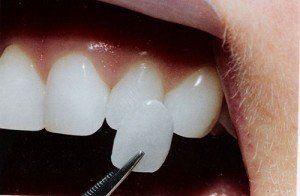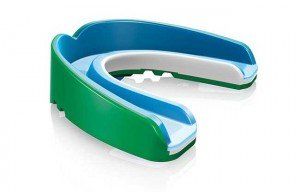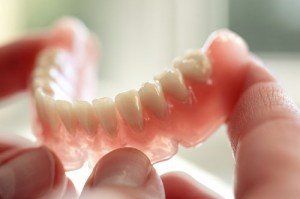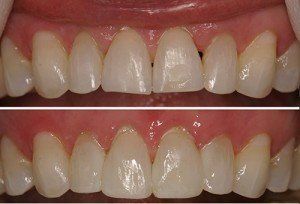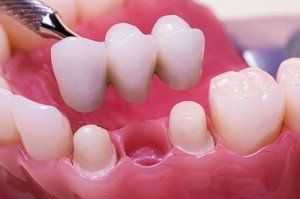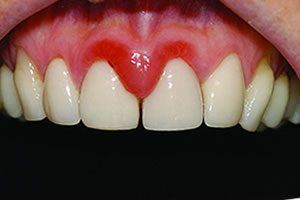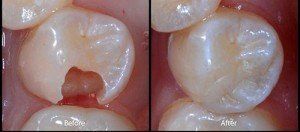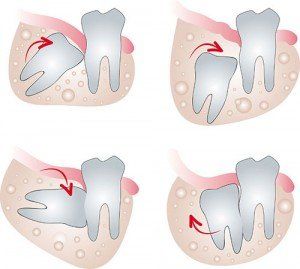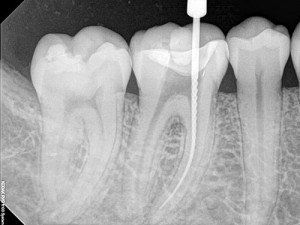Extractions
As ill-timed as it may be, there are occasions when a tooth needs extraction. Sometimes, this is the result of a primary (baby) tooth being misshapen, or because a tooth’s roots are too long, preventing it from naturally falling out. In some cases, a tooth may have to be removed because it is blocking a permanent tooth from erupting. Other times a tooth may have so much deterioration that it is putting the surrounding teeth and your jaw at risk. In situations like these, we may recommend taking out the tooth and putting a bridge or an implant in its place.
Other reasons we may suggest removal include:
- Painful or poorly formed wisdom teeth
- Orthodontic modifications
- Infection
Tell Me More about Extractions
If we determine that tooth removal is the best option, we may perform the procedure the same day. However, it is our experience that most of our patients prefer to schedule a separate appointment on a different day to make sure someone is available to drive them home after the procedure.
At New Concept Dental, Drs. Fay, Matthews, and Bayley take their time to make sure all parts of the root are removed to make extraction simple and as pain-free as possible. You see, each tooth in your mouth has its root encased within your jawbone in the tooth socket. A ligament holds the tooth in place in the socket. For a tooth extraction to be successful, we must expand the socket so we can easily detach the tooth from this ligament.
Although it may seem scary, tooth extraction is a procedure we perform all the time. When you choose New Concept Dental, you can be assured that we’ll explain every part of the process. You and your teeth are in good hands from start to finish.
Is Extraction Painful?
We always go to great lengths to make sure you are comfortable with any dental procedure performed in our office. Extractions are quick procedures, usually only requiring a localized numbing agent to ease any pain or discomfort associated with the procedure. If you have dental anxiety, please let us know, and we will plan ahead of time to speak with you about our sedation options.
Do I Need to Replace My Extracted Teeth?
The answer to this question depends on many factors. For instance, was the tooth that was removed a wisdom tooth? Wisdom teeth serve no general purpose and replacing them is not necessary or recommended. But, if you lost a back molar other than your wisdom tooth, we most likely will suggest a replacement tooth or bridge be placed to prevent future dental problems. You don’t see your back teeth, but they do play a significant role in the function of your jaw joint as well as helping you chew your food properly. Missing back teeth can also affect your bite as your teeth may shift after the extraction. Most patients that lose a front tooth due to a traumatic injury, or other reason, almost always opt to have the tooth replaced for cosmetic purposes.
Learn more about tooth extraction by calling our offices and speaking with your friendly, pain-free extraction specialists in Wilmington, DE.
Wisdom Teeth
Wisdom teeth usually make their grand appearance during an individual’s late teens or early twenties. These teeth are third molars and located in the very back of the mouth. They are the last teeth to emerge, both upper and lower. For lucky individuals, wisdom teeth will erupt through the gums and silently take their place, causing very little trouble.
Unfortunately, not everyone is so lucky. In cases like these, the wisdom teeth may become impacted and never quite fully erupt. Partial eruptions are attributed to the angle of the tooth’s entry or a lack of jaw room. A common type of impaction is mesial. When this happens, the wisdom tooth comes in at an odd angle, pushing forward toward the front of the mouth.
Why Should I Have My Wisdom Teeth Removed?
If your wisdom teeth are impacted, they must be removed. Failure to extract the tooth will result in the following:
- Gum tenderness
- Swelling
- Severe pain
Even in cases where your wisdom teeth have erupted and are seemingly harmless, you may still want to consider removal. Wisdom teeth are tucked away in your mouth, making it difficult for your toothbrush to reach them for proper cleaning. Eventually, the teeth will begin to decay because they can not be cleaned properly. Recurring infections, and even periodontal disease can also be a problem for individuals with whole or partially erupted wisdom teeth.
When Should I Remove My Wisdom Teeth?
There is not a one-size-fits-all answer to this question. First, we’ll want to order panoramic X-rays to find out if you need to remove your wisdom teeth sooner rather than later. Ideally, we want to remove your wisdom teeth as quickly as possible. Removing these teeth before they have fully erupted is ideal because the roots have not fully formed, and the bone surrounding the teeth is not as dense, making extraction easier. Not only is extraction easier when wisdom teeth first form, but the recovery time is quicker.
How Are Wisdom Teeth Removed?
We understand that oral surgery can be scary, which is why we take our time to explain the process to you. First, we’ll numb the area around the wisdom tooth, using a local anesthetic before the extraction process begins. In some situations, we may opt to use medication to sedate you during the procedure. This method is used when patients express signs of anxiety or nervousness.
If the tooth is impacted, your dentist will remove a section of the bone covering the tooth. To reduce the amount of bone e removed along with the tooth, your dentist will section the tooth and then extract each piece through the small opening in the bone.
How Long Is the Recovery Process?
Recovery from wisdom tooth removal varies from person to person. It depends on the amount of difficulty related to the procedure and individual complications. When you have your wisdom teeth removed by one of our dentists, we provide you with detailed information about the procedure and what to expect from the recovery process.
Root Canals and Your Dental Health
In the past, if you had a damaged tooth because of a diseased nerve, you had no choice but to have the tooth extracted. Today, thanks to advances in dentistry, many times we can save your tooth when there is nerve damage using the dental procedure affectionately (and we use that word loosely) referred to as root canal treatment. This straightforward process is quick and is not nearly as painful or scary as popular culture makes it out to be. Root canal treatments take anywhere from one to three visits to complete. Although you may wince at the notion of a root canal, this minor treatment can save your tooth and maintain your smile!
Why Do I Need a Root Canal?
The best way to answer that question is to address misconceptions about a tooth’s nerve function and root canals in general. You may not know this, but a tooth’s nerve is not critical to the health of the tooth once it has erupted through the gums. While the nerve is necessary during the development and formation of the tooth, after the tooth emerges from the gum the primary function of this nerve is to provide sensory information. The nerve gives you information about whether a liquid or food is hot or cold, but it does not play any role in the day-to-day function of your tooth.
Once patients learn this surprising dental fact, the next question they often ask is, “Then why do I need to have a root canal if the nerve isn’t necessary?” The reason for a root canal is because when a tooth has a deep cavity or becomes cracked in any way, bacteria are more likely to form in the pulp tissues. When bacteria develop in a tooth, germs can fester and create an infection. Once the tissue is infected, it should be removed as soon as possible, or pain and swelling will occur. The infection can also travel to your jawbone, which can be damaging to your overall health. If a root canal is not performed, you could lose your tooth.
How Do I Know If I Need to See My Dentist for a Root Canal?
Believe it or not, many teeth that need root canals are not painful at all. Even though you may not feel pain, your teeth may be giving you certain signs that you need a root canal.
The following are a few symptoms to be mindful of:
- Severe toothaches
- Pain when chewing
- Pain when pressure is applied to the area
- Sensitivity or pain to hot and cold temperatures that are lengthy or reoccur frequently
- Discoloration of the tooth
- Tenderness or swelling in nearby gums
If you are experiencing any of the above symptoms, contact us right away to schedule an appointment.
What Can I Expect during a Root Canal?
A typical root canal treatment can take anywhere from one to three visits. During the root canal, we will get rid of any infected tissue. Once the infected tissue is removed, the inside of the tooth will be cleaned, and a sealant applied. Lastly, we will use a dental composite to fill the tooth. If there is extensive decay in the tooth, we may recommend installing a crown on the tooth to provide added strength and protection to its structure. The crown will also prevent your tooth from breaking in the future.
How Long Does a Root Canal Last?
With proper brushing, flossing, and regular dental checkups, teeth restored by a root canal treatment can last a lifetime.
